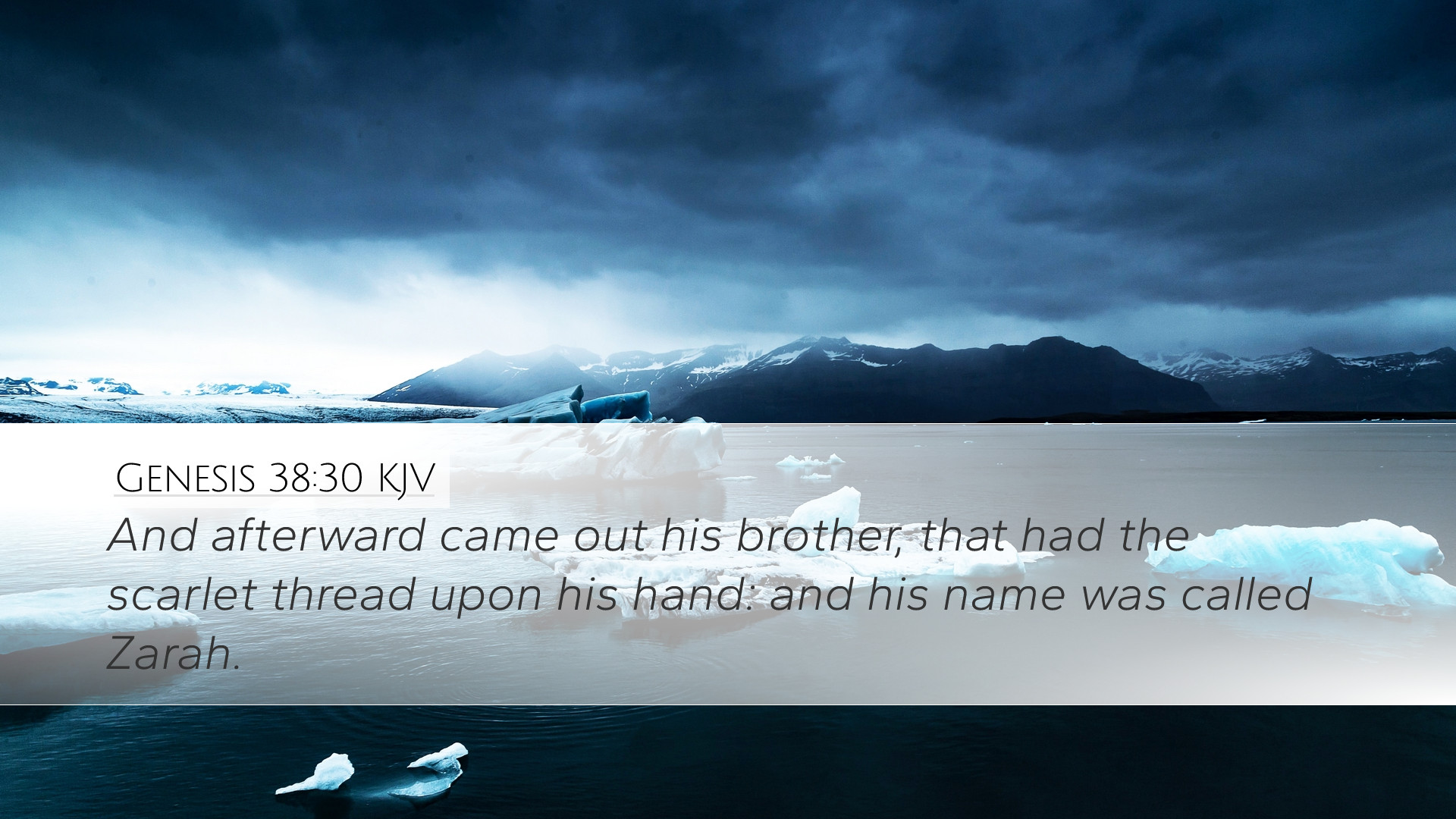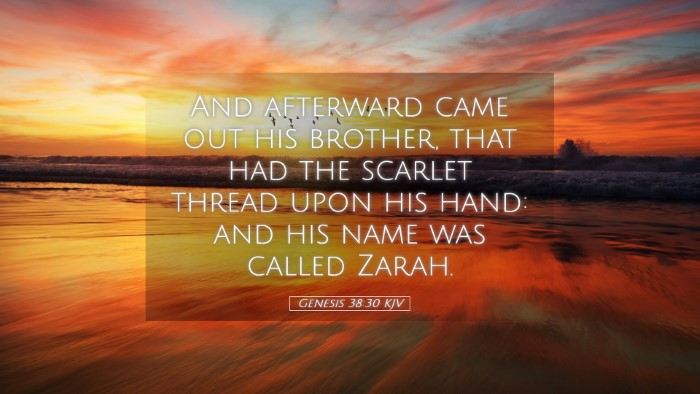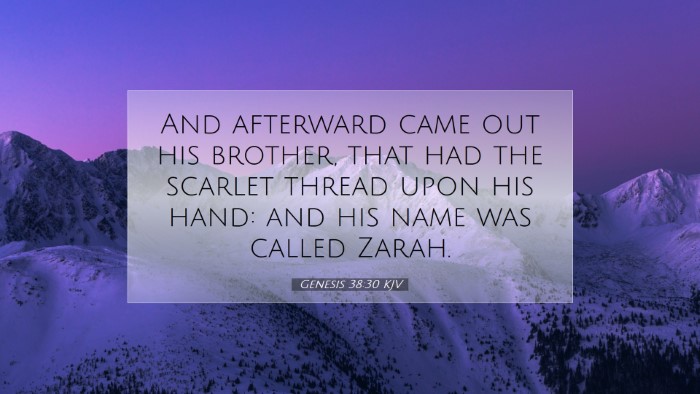Genesis 38:30 Commentary
Genesis 38:30 records a pivotal moment in the lineage of Judah, where the birth of Zarah is introduced along with his twin brother Perez. The verse states:
"And afterward came out his brother that had the scarlet thread upon his hand: and his name was called Zarah."
Contextual Analysis
This chapter delves into the account of Judah and Tamar, which is ripe with themes of justice, lineage, and divine providence. The genealogy of Jesus Christ is ultimately rooted in these events, offering profound theological implications.
Matthew Henry's Insight
Matthew Henry emphasizes the significance of names and the circumstances surrounding their giving. Zarah, meaning "rising" or "dawning," sets the tone for the future implications of his lineage. Henry elucidates that this moment foreshadows a future divided between the children of the promise and those outside it.
Albert Barnes' Perspective
Albert Barnes articulates the importance of the scarlet thread, suggesting that it symbolizes distinction and purpose in God's unfolding plan. He notes that the scarlet thread is a visual metaphor of marking—a theme prevalent throughout the Bible, where marks often signify belonging and divine favor. Barnes underscores the fact that the seemingly chaotic events become instrumental in God's redemptive narrative.
Adam Clarke's Observations
Adam Clarke dives deeper into the cultural and familial implications of this passage. He discusses the role of Tamar in this narrative, highlighting her actions as critical to the preservation of Judah’s lineage. Clarke points out the irony of the scenario where Zarah, initially seen as the firstborn through the scarlet thread, would not enjoy the rights of the firstborn due to God's sovereign choice manifesting through Perez.
Theological Reflections
In examining Genesis 38:30, one can draw out several theological reflections pertinent for pastors and theologians:
- Divine Sovereignty: The narrative illustrates God's sovereign control over the unfolding of history, as seen through the births of Perez and Zarah.
- Redemption through Unlikely Means: The circumstances surrounding the birth remind believers that God often works through unexpected and even scandalous means to fulfill His promises.
- The Importance of Lineage: As the genealogy of Christ traces back through Perez, it underscores the vital connection between Old Testament narratives and New Testament revelations.
Practical Applications
For contemporary ministry, the account serves as a reminder of the importance of understanding context when teaching Scripture. It may encourage believers to embrace the complexities and challenges of their personal stories as part of God's larger narrative.
Conclusion
Genesis 38:30 stands as more than a mere historical account; it serves as a profound theological statement about God's intricate and sovereign plan for redemption. The insights provided by public domain commentaries deepen our understanding of the implications this verse carries for believers today.
In the same way that Zarah's birth was marked with a scarlet thread, so too are believers marked by their faith in the redemptive work of Jesus Christ, who is the ultimate fulfilling of the lineage that began in Genesis.


